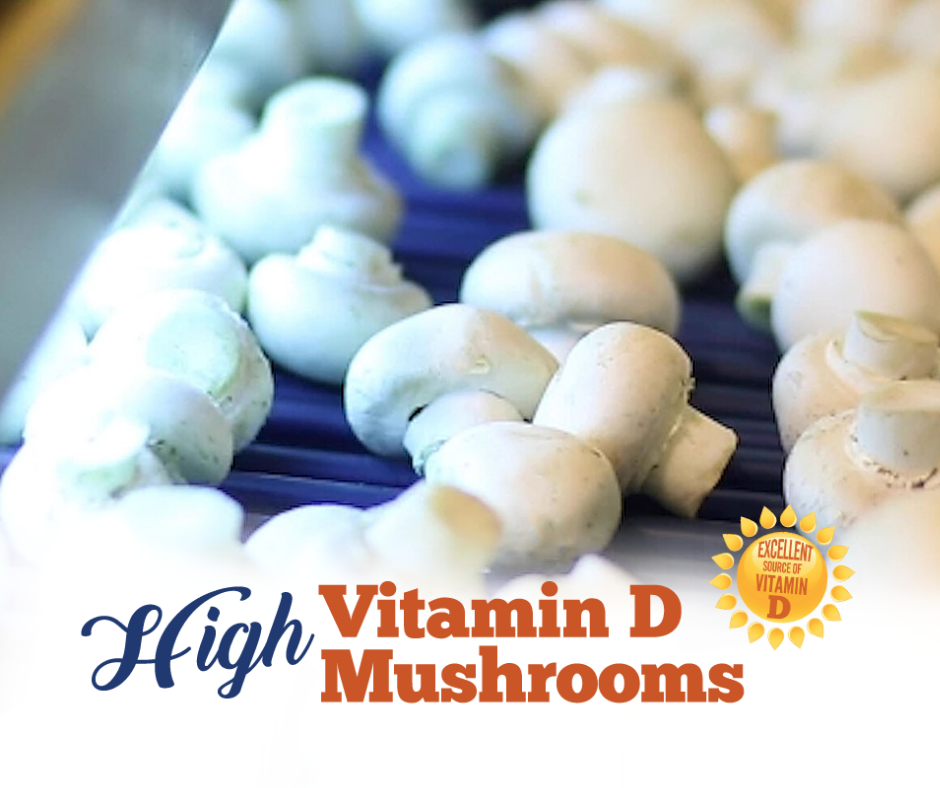For years, vitamin D has been studied for its incredible health benefits. From improving bone health to enhancing the immune system, this sunshine vitamin has proved itself worthy of attention, time and time again.*
But despite its importance, nearly 42% of Americans lack adequate vitamin D. Modern indoor lifestyles keep us out of the sun’s rays, which can provide people with vitamin D when exposed to our skin. Even when we are outside, sunscreen, sunglasses and protective clothing can block us from adequate exposure.
For the many people who may not receive enough vitamin D from the sun, it might be time to start incorporating it into your diet instead. Since the spread of the Covid-19 virus, at least 65 studies have been reviewed to investigate the relationship between vitamin D and Covid. Many show a positive influence on Covid-19 prognoses, including severity and duration of symptoms and more.
Let’s review some of the highlights of the latest research and see how the sunshine mineral might affect the Covid virus.
1. In one study, those with Covid had lower Vitamin D levels.
While it’s debatable if those with low vitamin D levels are more susceptible to getting and having symptoms from the virus, one study found that the majority of positive Covid patients in their care had a vitamin D deficiency.
The study published in the Endocrine Society’s Journal of Clinical Endocrinology and Metabolism found that of the 216 Covid-positive patients they observed, 82.2% had vitamin D levels lower than the recommended healthy range. Of these patients, mean vitamin D levels were 13.8 ± 7.2 ng/mL, compared with 20.9 ± 7.4 ng/mL in the control group.
Additionally, three other large-scale clinical trials have all observed that deficiencies in vitamin D can significantly elevate the risk of more severe or fatal Covid-19 outcomes. Learn more about how vitamin D deficiency can affect your health here.
2. Vitamin D may prevent worse outcomes, if used early into the infection.
Numerous studies support the conclusion that after someone tests positive with Covid-19, vitamin D could prevent them from experiencing severe symptoms— if taken early.
Analysis of 65 Covid and vitamin D studies found that positively-tested patients who took vitamin D doses days after infection sprang back from the symptoms better than those who received later treatment with the sunshine nutrient.
“With all studies, it shows a 63% improvement,” Tim Avila, founder and president of Systems Bioscience, shared. “But early treatment studies are off the charts—90% improvement.”
In another study on French nursing home residents, not only did their Covid patients in the vitamin D group have a better survival rate, but they also experienced less severe cases of the virus.
3. Vitamin D can be especially helpful for the elderly.
While taking vitamin D isn’t necessarily a preventative measure for being infected with Covid, it supports strong bone health and could be a wise supplement for reducing injury severity in accidental falls. Elderly people who caught the virus can be more susceptible to lethargy and such fall risks, so taking the recommended daily value of vitamin D could help to at least improve their bone health.
Research also suggests that older individuals may want to consider vitamin D supplements if infected. In one study, Luke Huber, ND, MBA, vice president of Scientific and Regulatory Affairs for CRN, points out that, “As adults age, the risk of vitamin D deficiency and insufficiency increases… Worse outcomes from Covid-19 and other respiratory infections are seen with increasing age.” Receiving vitamin D as a preventative measure and in early-set treatment could help reduce other risk factors and possible severity of Covid outcomes.
In one German study, James DiNicolantonio, Ph.D. made an excellent point, saying "You cannot control your age, but you can control if you are vitamin D deficient, and this seems to be an even worse risk factor than being elderly."
4. Children are often low in Vitamin D and could benefit from more of the nutrient.
For those worried about their children getting Covid, increasing their child’s vitamin D could potentially help their immune system resistance and ability to recover faster from the virus.
American children between the ages of 1 and 6 years old often have inadequate intakes of key nutrients, including calcium, DHA, iron and— of course— vitamin D. As young children age, the proportion of kids not meeting their estimated average requirement on the sunshine vitamin actually increases: 79.2% for 1-2 years, 87.3% for 2-3 years, and 90.8% for 4-6 years, according to a new analysis in the National Health and Nutrition Examination Survey (NHANES).
Get Your Vitamin D from Fresh Mushrooms!
Because obtaining recommended vitamin D levels strictly through sun exposure can be difficult, many people seek vitamin D in their diet. But very few animal-based foods include natural levels of vitamin D.
There’s one item in the produce department that can provide a significant serving of vitamin D… High Vitamin D mushrooms! By sneaking some specially-labeled fresh fungi onto your plate, you could get one step closer to receiving the optimal level of vitamin D.
Download our ebook, Everything You Need to Know About High Vitamin D Mushrooms, to learn more.
*These statements have not been evaluated by the Food and Drug Administration. This product is not intended to diagnose, treat, cure, or prevent any disease. If you are pregnant or lactating, have a medical condition or are on medications, please consult with your licensed healthcare provider before using nutritional supplements.







